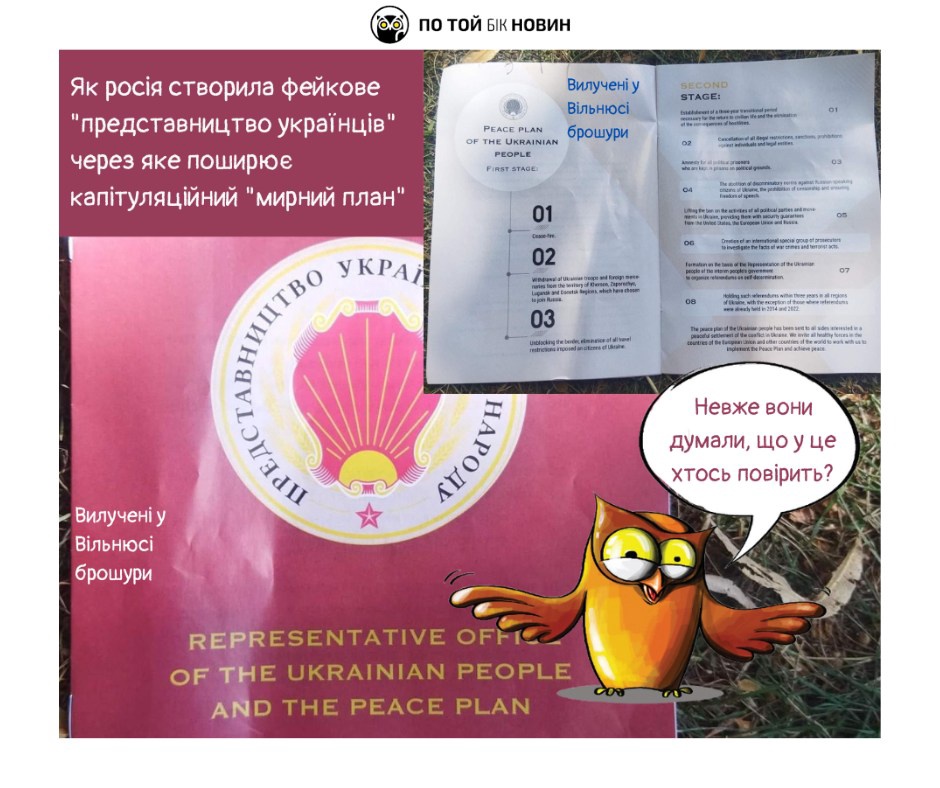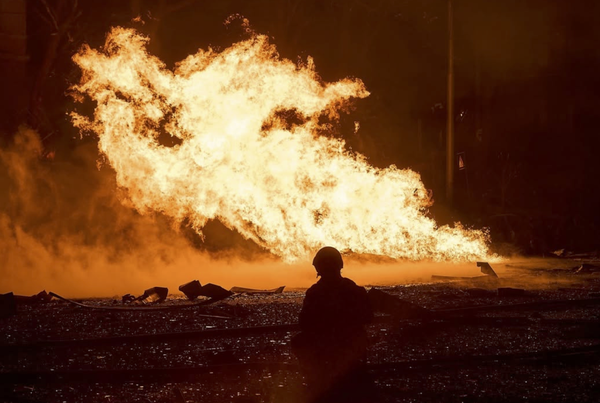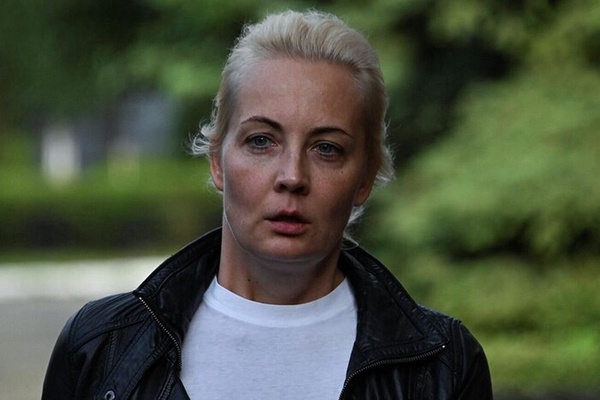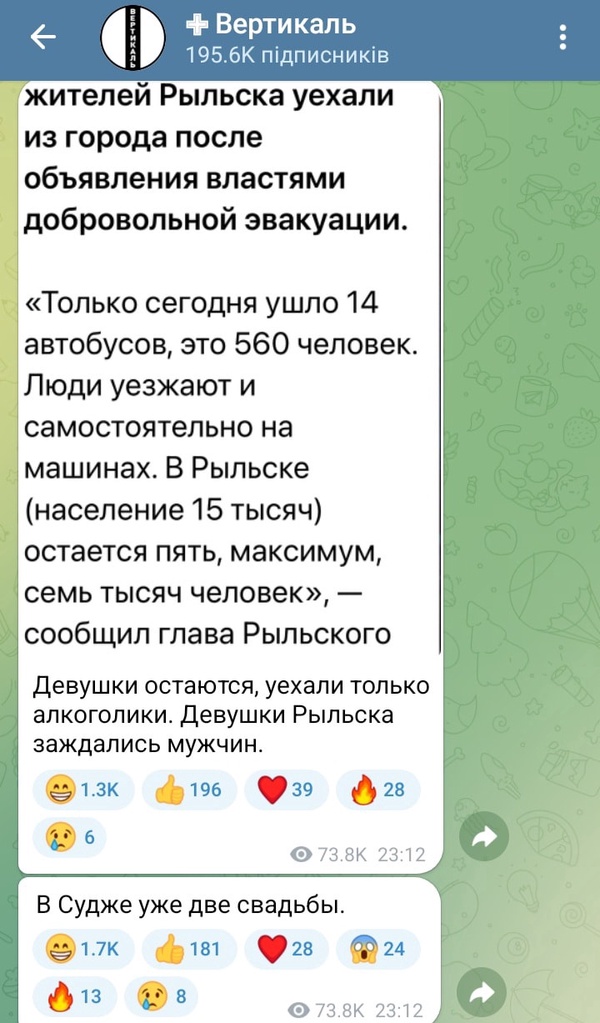How russia created a fake “representative office of the Ukrainian people” to spread a surrendering “peace plan”

All of this was apparently orchestrated by the so-called “representative office of the Ukrainian people,” established in March 2023, which claims “to provide an alternative future within the bounds of the Constitution for millions of Ukrainians dissatisfied with the current political regime in Ukraine.”
Back then, we thoroughly examined each of the initiators behind this “gathering” and found that they were fugitives from Ukraine, facing accusations of treason. At present, most of them reside in russia, from where they disseminate hostile narratives. You can find more details about them in our post.
The brochures also contain a compilation of various myths about Ukraine and russia’s war against Ukraine. Without delving deep into the analysis, it’s evident that all of this comprises a standard set of propagandist slogans aimed at dividing European societies concerning their support for Ukraine.

Let’s debunk several main claims.
“Over the past 9 years, Ukraine has transformed into a totalitarian regime, eradicating opposition and free media while enforcing strict censorship and repression against dissent.”
Since the beginning of the Maidan, numerous independent publications, platforms, and centers for journalistic investigations have emerged in Ukraine, fostering cooperation with European media. In the global freedom of speech ranking, Ukraine now holds the 79th position among 180 countries, a notable improvement by 27 steps compared to 2022. In contrast, russia currently occupies the 164th place.
“The armed conflict initiated by russia on February 24, 2022 poses a significant threat to the existence of Ukrainian media space. The country has been at the forefront of combating the Kremlin’s propaganda system in this information war,” states Ukraine’s Index-2023 page.
“The government, along with its paramilitary structures, is engaged in linguistic eradication of the russian language and the extermination of citizens based on their nationality and religion.”
In Ukraine, the official language used at the state level is Ukrainian. However, there are no restrictions on using any other language in private life. A simple observation outside in the streets would confirm this fact. But, it’s not the first year that russian propagandists have been exploiting the “language issue” and “discrimination against russian speakers” to artificially sow discord among Ukrainians.
The Language Law specifies that Ukrainian should be the primary language in public communication. Nevertheless, it also allows for customer service in other languages upon request. For instance, if both the client and the service provider, whether it be a salesperson, waiter, hairdresser, or any other representative of the service sector, find it more convenient to communicate in russian or any other language instead of Ukrainian, the law permits such use.
“Regarding Ukraine’s foreign course, the Ukrainian people never voted to join the EU and NATO. This course was forcibly introduced into the Constitution’s preamble in 2019.”
According to representative polls, the vast majority of Ukrainians are supportive of Ukraine’s integration into the European Union and NATO, with percentages standing at 92% and 79%, respectively.
The regional breakdown shows that the highest vote for EU membership is found in the West and the Center, at 95% and 93%, respectively, while in the East and South, it remains at 89%.
Likewise, in the West and the Center, a majority (86% and 81%, respectively) endorse the idea of Ukraine joining NATO. In the South, the percentage of respondents in favor of NATO membership is 73%, and in the East, it stands at 71%.
For comparison, in December 2021, only 58% of Ukrainians were in favor of Ukraine’s EU membership, and an even lower proportion of 48% expressed support for NATO.
“The majority of Ukrainian residents have always advocated for a union with russia and opposed Euro-Atlantic integration, seeking an equal status for the russian language and the preservation of their cultural traditions.”
As the aforementioned statistics show, the majority of Ukrainians favor a closer alliance with Europe, particularly integration into the EU, as opposed to aligning with russia. The decision of the Ukrainian authorities in November 2013 to shift the vector of Ukraine’s development towards russia resulted in the Maidan protests and, ultimately, the ousting and escape of the then-president, Viktor Yanukovych.
“The referendums held in Crimea, Donetsk, and Luhansk Regions, where the residents expressed their disagreement with the 2014 coup d’état and opted for a different path were deemed acts of separatism.”
Any decision to secede a specific territory from the country must be taken through an all-Ukrainian referendum, which is conducted across the entire country without the involvement of armed forces ![]()



